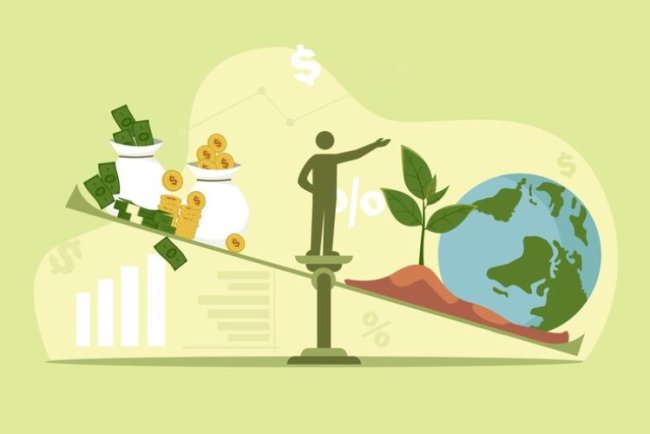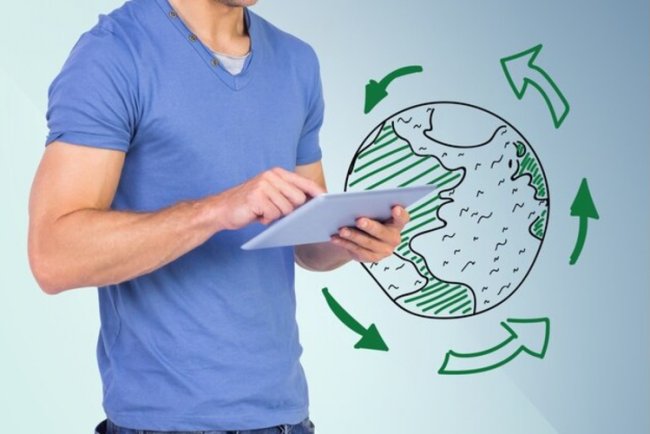Microsoft Signs CO2 Deal For Waste-To-Energy Project
Microsoft to buy 3M tons of CO2 removals from Danish waste-to-energy carbon capture project starting in 2029.

As one of its ambitious carbon neutrality initiatives, Microsoft has entered into a long-term offtake agreement with Copenhagen Infrastructure Partners (CIP) and Vestforbrænding, a Danish waste-to-energy (WtE) firm. In the deal, the procurement of almost 3 million tons of carbon removals from a new carbon capture and storage (CCS) facility to be built at an existing WtE facility in the greater Copenhagen area is included.
Microsoft will start offtaking the carbon removals starting 2029 under Gaia project deal, which is a partnership between Vestforbrænding and CIP. The Gaia project will retire Vestforbrænding's current WtE facility in Glostrup, Denmark, with an end-to-end carbon capture system. Once operational, it will be among the first carbon capture systems at scale in Europe.
Carbon capture technology implemented at the Glostrup plant will be industrial-scale amine-based solvents. The solvents trap carbon dioxide from flue gas—a waste product of the waste-to-energy combustion process—through a capture rate of more than 95%. The captured CO₂ will be stored in permanent storage facilities, and therefore it won't be emitted back into the atmosphere. Notably, the plant will process both fossil and biogenic carbon emissions sources, but the resulting Carbon Removal Units (CRUs) will be the biogenic component of CO₂, which counts as net-negative emissions in many carbon accounting standards.
At maximum capacity, the Gaia project will remove about 500,000 tons of CO₂ annually. The size of the transaction with Microsoft is that the technology giant will be buying CRU's entire production over a ten-year period, and that will represent a total of some 3 million tons of carbon removal. Besides reducing its potential emissions, the project will render the plant more beneficial as well: the plant will have an increased district heating capacity, supplying heat to an additional 10,000 district homes, for the purpose of pursuing climate and energy resilience goals.
Steen Neuchs Vedel, Vestforbrænding CEO, said the offtake agreement is a "defining milestone" for Gaia. Not only does it confirm Vestforbrænding's commercial and technical maturity that we have been striving to achieve," he added, "but it also indicates how that maturity has been supplemented by CIP's involvement in the project. It confirms the quality of our collaboration with CIP and illustrates why we decided to collaborate—combining our operating expertise with their capacity for scaling up and delivering large-scale infrastructure.".
Microsoft is now the globe's largest corporate purchaser of carbon removal credits and has pursued aggressively partnerships in its pursuit of climate ambition. Microsoft has committed to being carbon negative by 2030 and to removing its entire emissions history by 2050. The Gaia deal is one of a series of carbon removal transactions Microsoft entered into in 2025 alone, which include another waste-to-energy-based carbon capture deal in June and two more multi-million-ton deals in the past few weeks.
Brian Marrs, Microsoft Senior Director of Energy & Carbon Removal, referenced the significance of retrofitting existing WtE plants according to EU policy. "Gaia's retrofit strategy for waste-to-energy plants—combined with the rollout of the EU Waste Framework Directive—release more carbon-free energy while keeping preventing waste and recycling as top priorities," he said. Marrs also touched on the necessity of partnering with experience-based developers such as CIP, which has a proven track record and the ability to access funds that has seen them become a major player in the nascent carbon removals market.
The transaction is a strategic landmark for Copenhagen Infrastructure Partners. Nikos Samaritis, Managing Director in CIP's Energy Transition Fund (CI ETF I), described the Microsoft transaction as "important" for Gaia and for CIP's wider aspirations. "Entering into this agreement, via Gaia, is the initial transaction between CIP, via CI ETF I, and Microsoft, and we look forward to it being the beginning of a long-term relationship between the parties," Samaritis stated. He also expressed that the deal is the first offtake agreement CIP entered into regarding environmental attributes like CRUs, which represents a larger position for the company in the establishment of new climate-conformant technologies and markets.
The Gaia project is representative of a trend towards joined-up climate solutions—where energy supply, carbon capture, and waste management converge. As governments and companies double down on decarbonization, such projects are emerging into the market as scalable, shovel-ready solutions for lowering atmospheric carbon concentrations. The Microsoft-Vestforbrænding-CIP transaction will establish the template for subsequent public-private partnerships in Europe and globally as regulatory regimes and carbon markets evolve to meet the needs of the climate crisis.
What's Your Reaction?

















